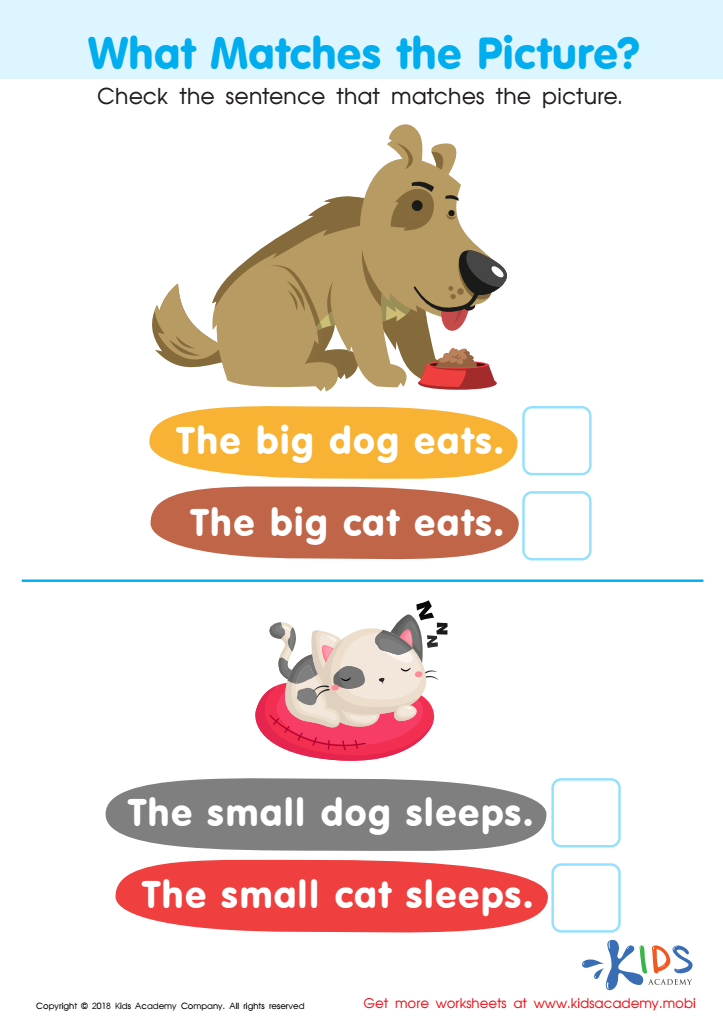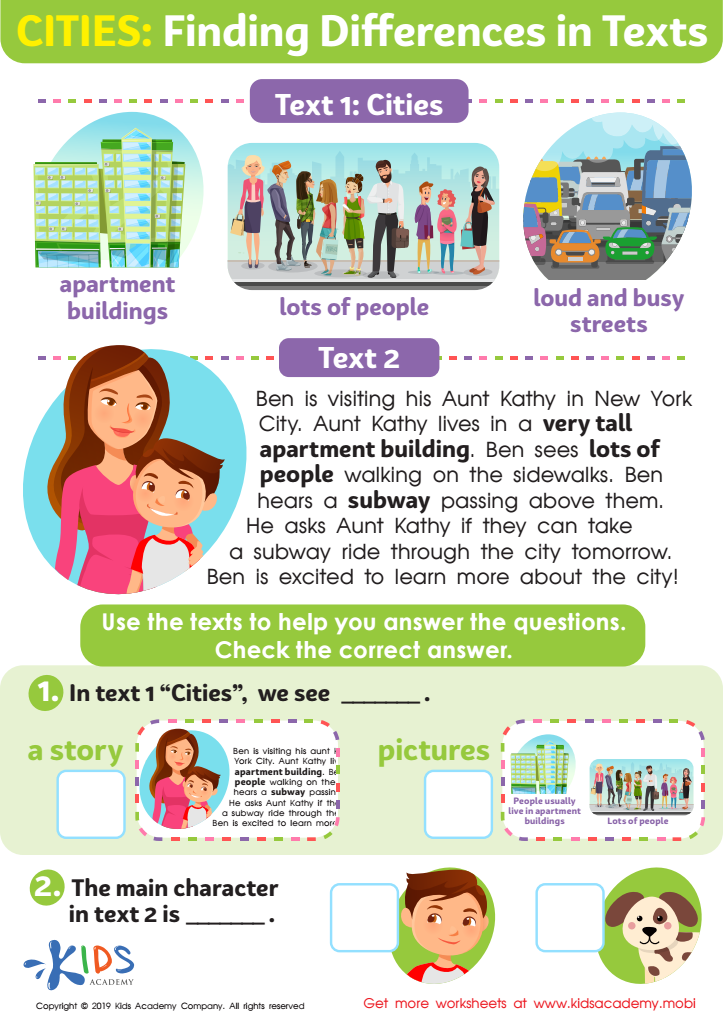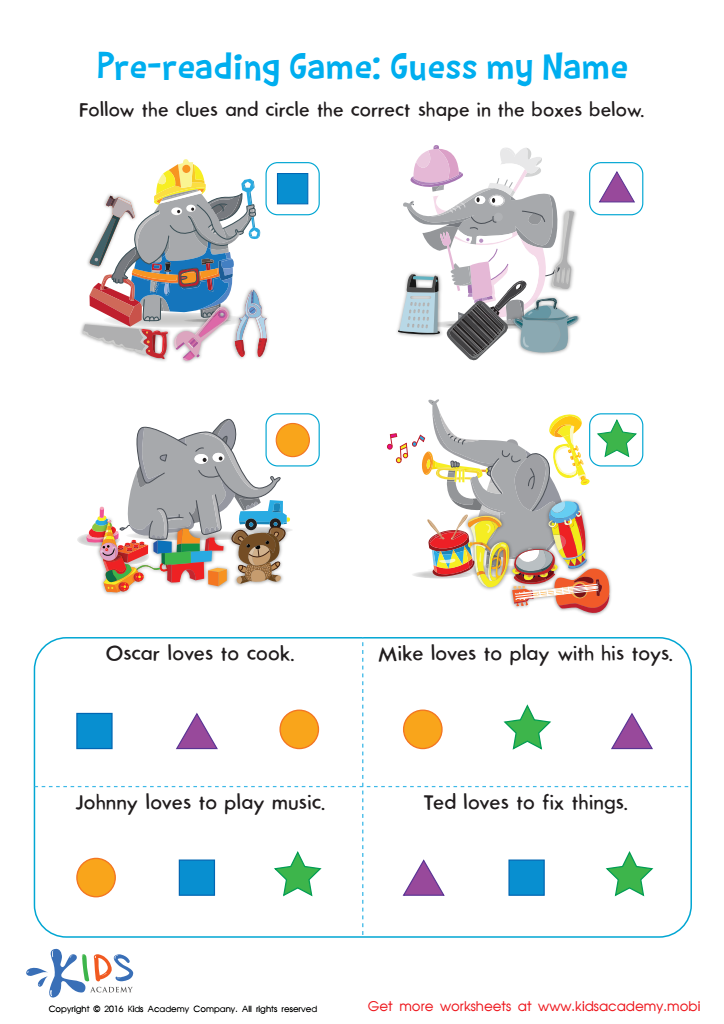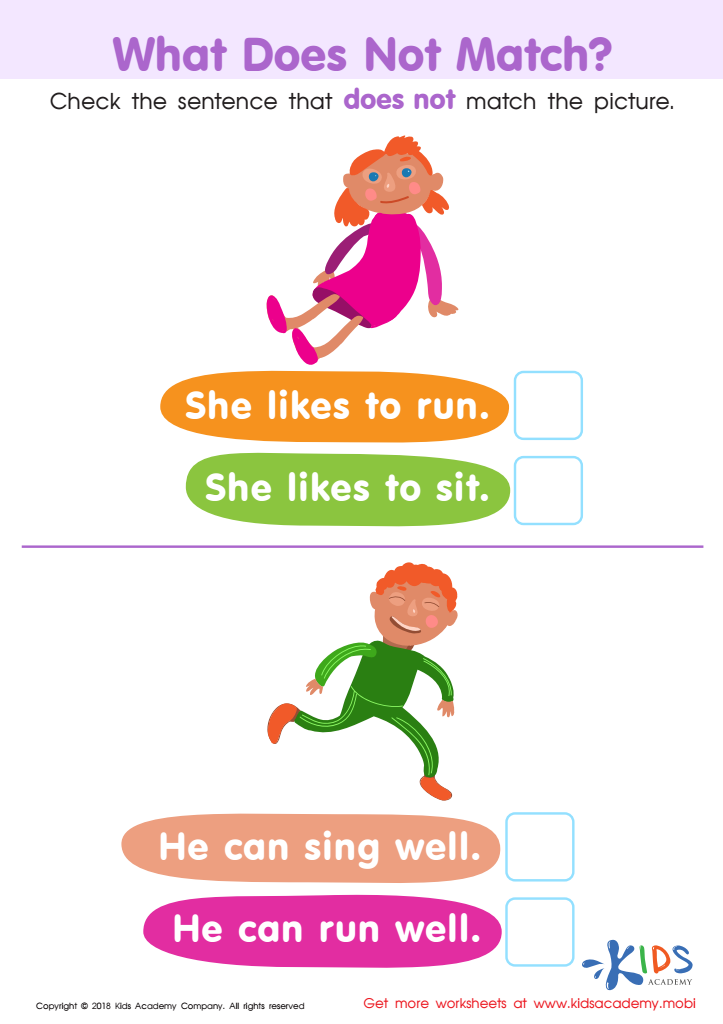Cognitive Development Reading Comprehension Worksheets for Ages 3-4
4 filtered results
-
From - To
Our "Cognitive Development Reading Comprehension Worksheets for Ages 3-4" are specially designed to foster early cognitive skills in young children. These interactive worksheets provide engaging activities that promote essential reading comprehension, critical thinking, and problem-solving abilities. Each worksheet is crafted to align with early childhood education standards, ensuring that children not only have fun but also develop essential pre-reading skills. Perfect for parents and educators, our resources are an invaluable tool for laying a strong foundation in literacy and cognitive development, preparing kids for future academic success while nurturing a lifelong love for learning.


What Matches the Picture? Worksheet


Cities: Finding Differences Worksheet


Pre Reading Worksheet Guess My Name


What Does Not Match? Worksheet
Caring about cognitive development and reading comprehension for ages 3-4 is crucial because this period is foundational for a child's future learning success. At this age, children's brains are growing at an unprecedented rate, making it an optimal time to develop essential cognitive skills. Reading comprehension is not just about recognizing words but also understanding and interpreting information, which lays the groundwork for critical thinking, problem-solving, and effective communication.
When parents and teachers focus on reading comprehension, they help children enhance their vocabulary, improve listening skills, and develop the ability to follow instructions. Activities like reading stories, asking questions about the plot and characters, and encouraging children to predict what happens next engage their minds and foster a love for learning.
Furthermore, early reading experiences contribute to emotional and social development. Sharing stories allows children to relate to different characters, understand various emotions, and learn empathy. It also provides a platform for bonding with caregivers, offering a sense of security and confidence to explore their understanding of the world.
Investing time and effort in nurturing these capabilities at an early age sets the stage for academic success and lifelong learning habits, making cognitive development and reading comprehension critical concerns for parents and educators alike.
 Assign to My Students
Assign to My Students






.jpg)

.jpg)












